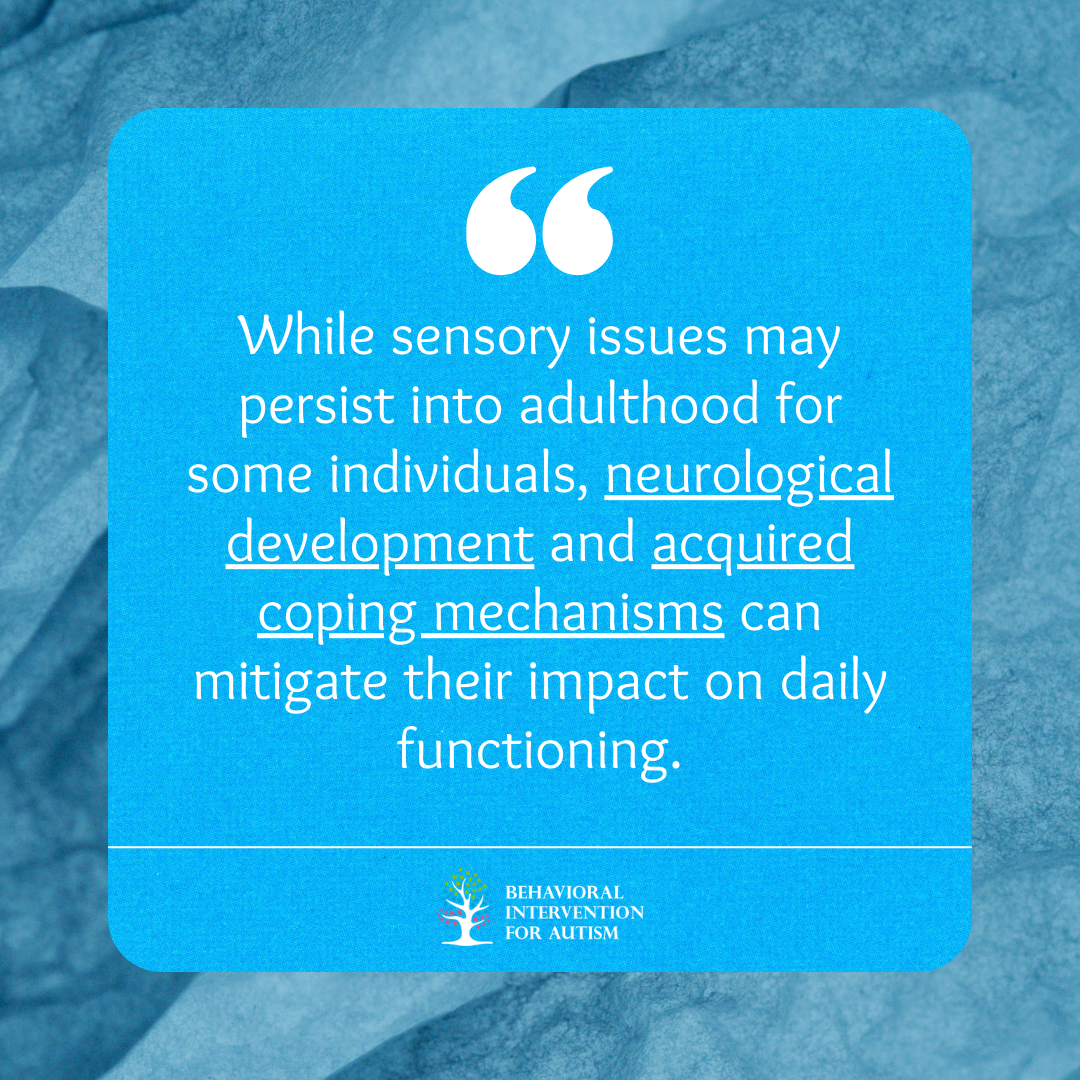
Table of Contents
Understanding sensory issues is crucial for parents, caregivers, and those interested in autism spectrum disorder.
Exploring sensory processing disorders and their long-term effects offers valuable insight into the challenges individuals with autism experience.
Can Sensory Processing Disorder Be Cured?
No, Sensory Processing Disorder (SPD) cannot be “cured” in the traditional sense. SPD is a neurological condition that affects how the brain processes sensory information, and while there isn’t a definitive cure, individuals with SPD can significantly improve their sensory processing abilities through therapy and support. Occupational therapy, particularly sensory integration therapy, helps individuals manage their sensory challenges, allowing them to better navigate daily activities and environments. With the right interventions, many people with SPD experience notable improvements in their ability to regulate and respond to sensory input.
However, because SPD is often a lifelong condition, ongoing management may be necessary to address sensory sensitivities that arise over time. Children with SPD can benefit greatly from early intervention, which helps them develop coping strategies, but even adults with the condition can learn new ways to adapt. While therapy can improve quality of life and reduce the impact of sensory challenges, the focus is more on managing symptoms than eliminating the disorder altogether.
Nature of Sensory Processing Disorders
Sensory Processing Disorders are underlying neurological processing deficits that impact how individuals perceive sensory information from their environment. These disorders manifest in various ways, such as hypersensitivity (over-responsivity), hyposensitivity (under-responsivity), or seeking sensory stimulation. It’s crucial to note that sensory processing disorders cannot be cured through medication. Effective treatment typically involves sensory integration therapy aimed at enhancing sensory processing abilities.
Impact of Sensory Issues Over Time
For many individuals on the autism spectrum, sensory issues evolve over time. In the majority of cases, sensory issues tend to naturally improve or become less disruptive as a child grows and matures. Maturation plays a significant role in how individuals manage sensory discomfort. As individuals age, they often develop compensatory skills that help them navigate sensory challenges more effectively.

Coping Strategies and Interventions
Addressing sensory processing disorders requires effective coping strategies and interventions.
The three key approaches discussed are occupational therapy for sensory issues, sensory integration therapy, and the advantages of sensory diets.
Occupational Therapy for Sensory Issues
Occupational therapy is a crucial component in the holistic treatment of sensory processing disorders. While there is no direct cure for sensory processing disorders through medication, occupational therapy provides tailored interventions to help individuals develop the necessary skills to navigate their sensory sensitivities. By working with an occupational therapist, individuals can learn coping mechanisms, self-regulation techniques, and strategies to improve their sensory responses in various environments.
Sensory Integration Therapy
Sensory integration therapy focuses on addressing the underlying neurological processing deficits associated with sensory processing disorders. While sensory processing disorders cannot be cured by medicine, sensory integration therapy aims to help individuals better integrate and respond to sensory input. Through structured therapy sessions led by trained professionals, individuals engage in sensory-rich activities to improve their sensory processing abilities and enhance their overall quality of life.
Benefits of Sensory Diets
A sensory diet is a personalized plan of activities designed to help individuals manage their sensory processing disorder in their daily lives. These activities are carefully selected to meet the specific sensory needs of each individual, aiding in their ability to regulate and respond to sensory stimuli effectively.
Tools and Aids for Managing Sensory Challenges
Individuals with sensory processing disorder (SPD) often benefit from specialized tools and aids that can help them navigate and cope with sensory challenges.
Three key resources that have proven effective in managing sensory issues are weighted products for calmness, sensory seating for focus, and environmental accommodations.
Weighted Products for Calmness
Weighted products, such as blankets and vests, offer deep-pressure tactile input that can assist individuals with SPD in feeling a sense of calm and security. These items provide gentle pressure, mimicking a hug or a comforting touch, which can have a soothing effect on the individual’s nervous system.
Weighted Product | Calming Effect |
Weighted Blanket | Promotes relaxation and reduces anxiety |
Weighted Vest | Offers a comforting and grounding sensation |
Sensory Seating for Focus
Sensory seating is specially designed to support individuals with SPD by enhancing their vestibular input, which can positively impact their focus, attention, and comfort. These innovative chairs provide the necessary balance and movement that individuals with SPD may require to stay engaged and centered.
Sensory Seating | Focus Enhancement |
Rocking Chair | Encourages calming movement for improved focus |
Wobble Stool | Promotes active sitting to enhance attention |
Environmental Accommodations
Creating an environment that is tailored to the specific sensory needs of individuals with SPD is vital in facilitating their comfort and well-being. Environmental accommodations may include adjustments to lighting, sound levels, textures, and overall sensory stimulation to create a more supportive space.
Environmental Accommodations | Benefits |
Soft Lighting | Diminishes visual overstimulation |
Quiet Zones | Minimizes auditory distractions |
Sensory-Friendly Textures | Enhances tactile comfort |
Incorporating tools and aids into daily routines helps individuals with sensory processing disorder manage challenges more effectively, improving their overall quality of life. These resources enhance comfort, focus, and sensory experiences, empowering individuals with SPD to navigate the world with confidence and ease.
While there is no cure for sensory processing disorder, early intervention can greatly improve an individual’s ability to manage sensory challenges. Through specialized therapies like ABA, we can help individuals develop coping strategies and build essential skills.
Behavioral Intervention for Autism offers comprehensive ABA programs in Florida that are designed to address the unique needs of those with sensory processing issues. Our team is dedicated to delivering high-quality, personalized care that empowers individuals to thrive. If you’re ready to explore how we can help, contact us to learn more about our tailored services.
- 9 Common Obsessions of Children With Autism You Should Know - February 25, 2025
- What is Neurodiversity? A Guide to Embracing Differences - February 25, 2025
- Understanding Hyperfocus in Autism: What It Means and Why It Happens - February 25, 2025
